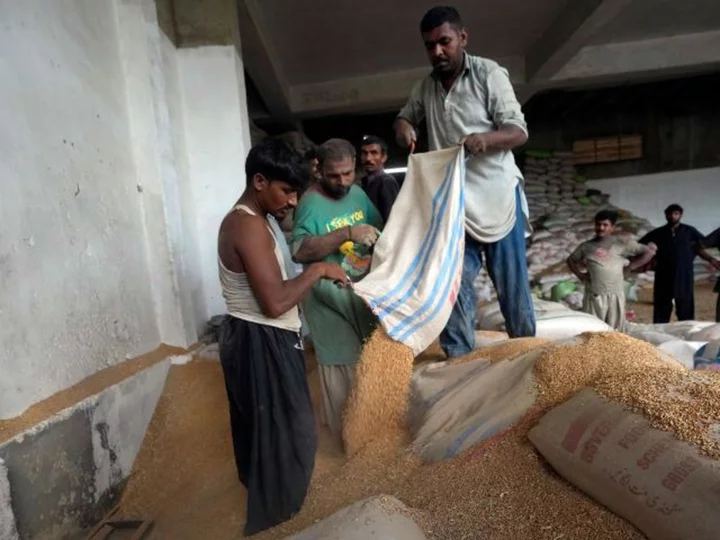Russia's invasion of Ukraine caused deep disruptions in the global food supply, raising prices and increasing the risk of food insecurity in poorer nations in the Middle East and North Africa, America's top spy agency said in an unclassified report released by Congress on Wednesday.
The direct and indirect effects of the war "were major drivers of one of the most disruptive periods in decades for global food security," the eight-page report found -- in large part because Ukraine and Russia were among the world's largest pre-war exporters of grain and other agricultural products.
Although food security concerns have abated since the start of this year, according to the report, the future trajectory of global food prices likely will depend in part on what happens with the Black Sea Grain Initiative, which Russia ended in July. The deal, facilitated by the United Nations, had allowed Ukrainian agricultural shipments to safely exit Black Sea ports and reach the international market.
How much acreage Ukraine is able to cultivate as the war continues to rage and the cost and availability of fertilizers will also have an impact on global food prices, the report found. Global fertilizer prices reached near-record levels in mid-2022 as global oil and natural gas prices rose.
"The combination of high domestic food prices and historic levels of sovereign debt in many countries -- largely caused by spending and recessionary effects of the COVID-19 pandemic -- has weakened countries' capacity to respond to heightened food insecurity risks," the report said. "These factors probably will undermine the capacity of many poor countries to provide sufficient and affordable food to their population through the end of the year."
Droughts last year in Canada, the Middle East, South America and the United States also compounded the war-related stress on global food supplies, according to the report.
Intelligence officials have accused Russia in the past of weaponizing food supplies by blocking Ukrainian exports, destroying infrastructure and occupying Ukrainian agricultural land.
Citing satellite imagery and open-source reporting, the report said that Russia stole nearly 6 million tons of Ukrainian wheat harvested from occupied territories in 2022. Cargo ships used to transport the stolen grain out of Russian-occupied territories in 2022 would steer along the coast of Turkey to deliver shipments to ports in Syria, Israel, Iran, Georgia and Lebanon, the report said.
"We cannot confirm if the buyers of the Russian cargoes were aware of the grains' Ukrainian origin," the report said.
The report was mandated by the annual intelligence authorization bill and released by the House Intelligence Committee.
"This report casts light on the war's broader disruption to global food security and reveals how (Russian President Vladimir) Putin has intentionally used food security and the threat of starvation as a negotiating chip," committee leaders Reps. Mike Turner and Jim Himes said in a statement. "Russia's recent refusal to renew the Black Sea Grain Initiative will worsen this crisis, driving vulnerable nations into food shortages that could leave millions struggling to eat."

